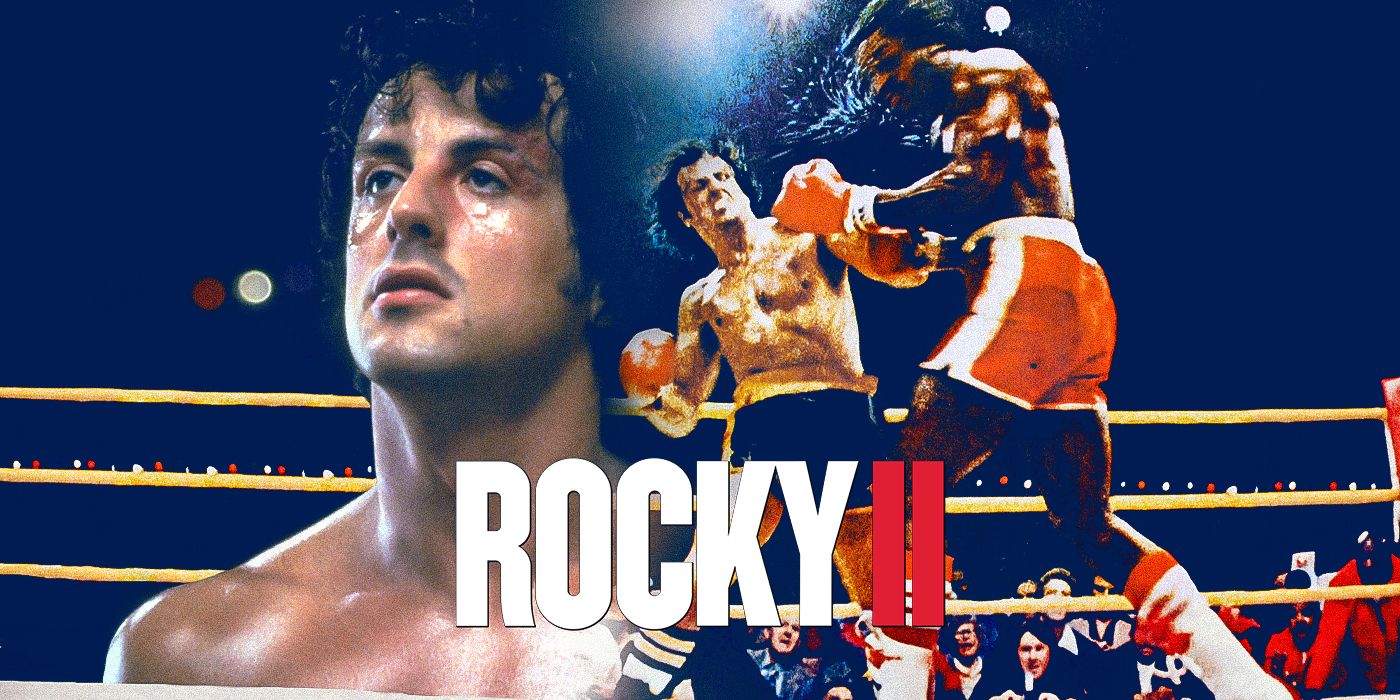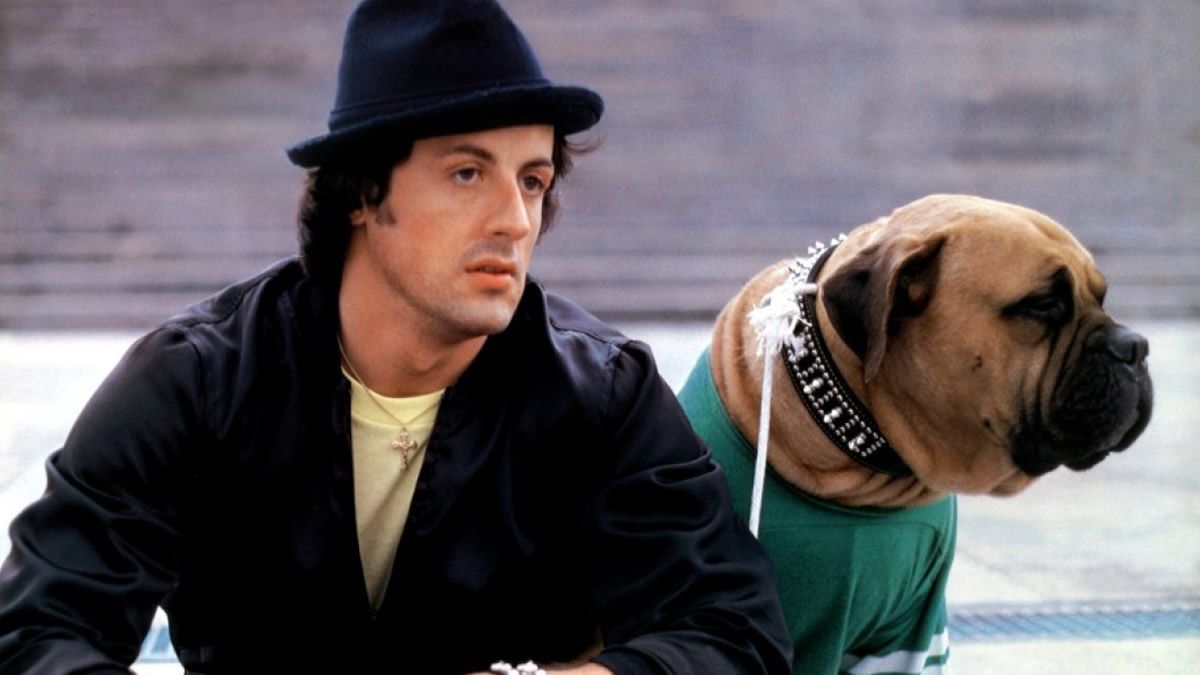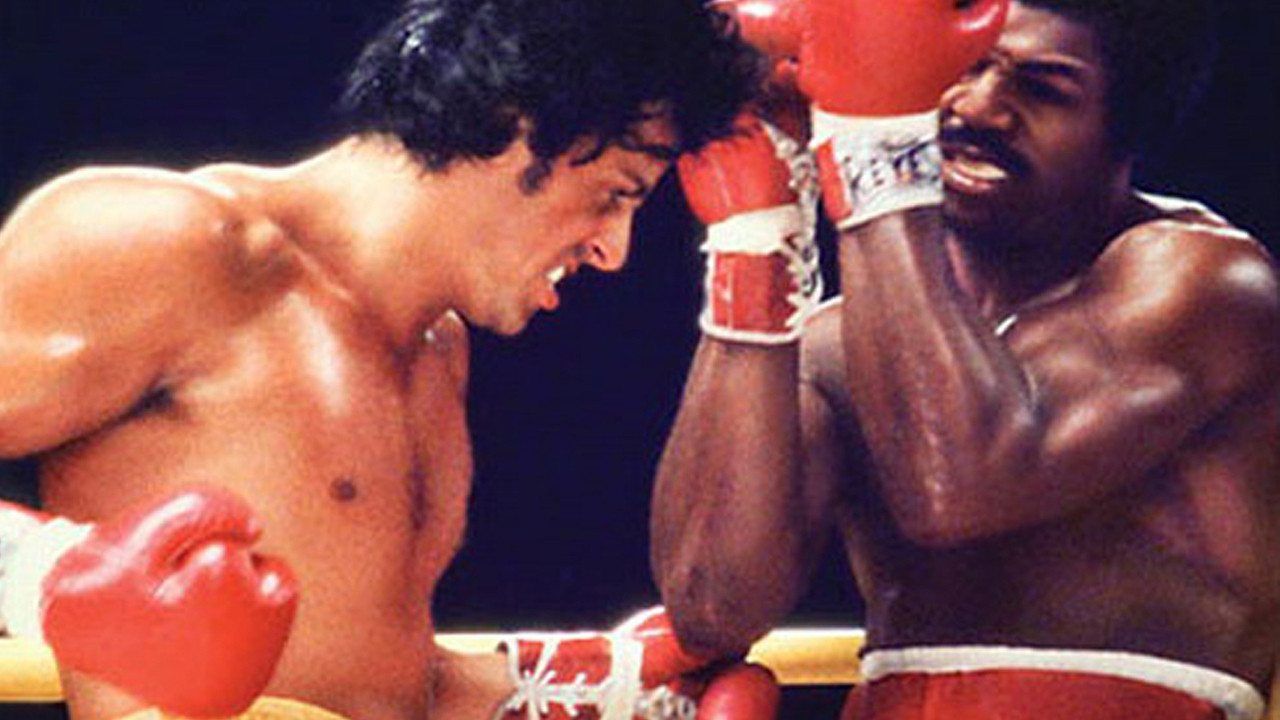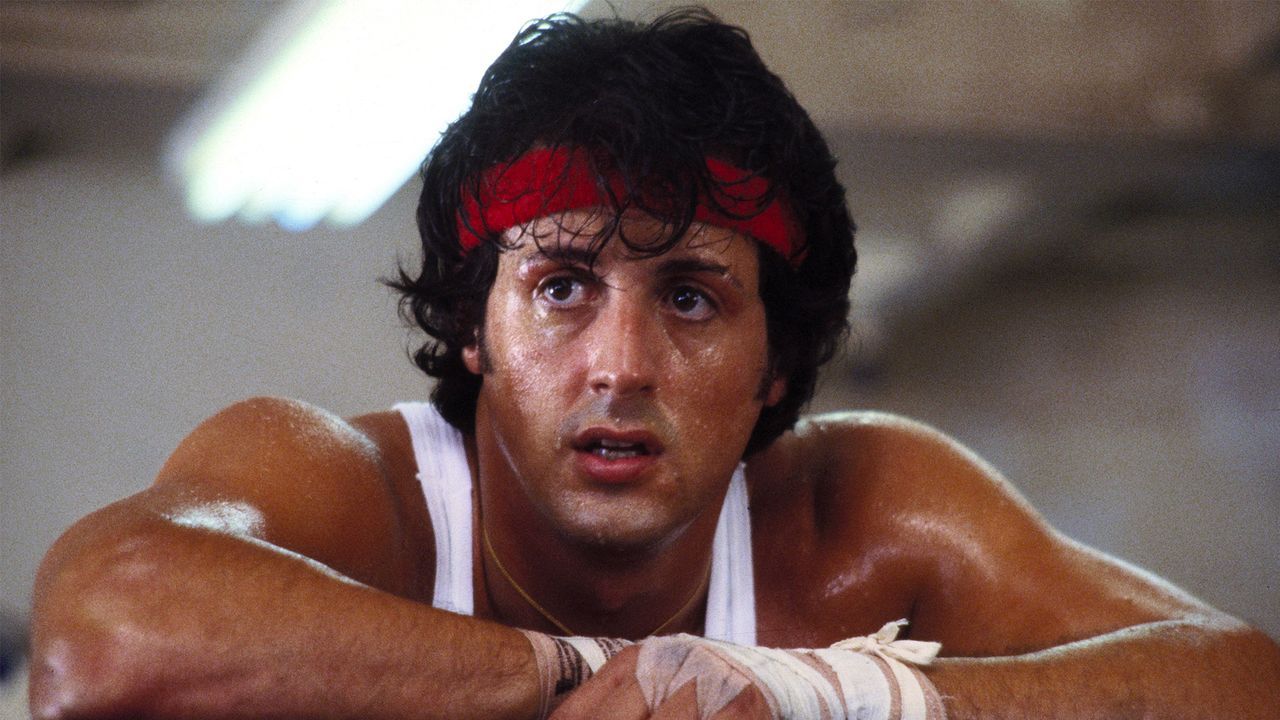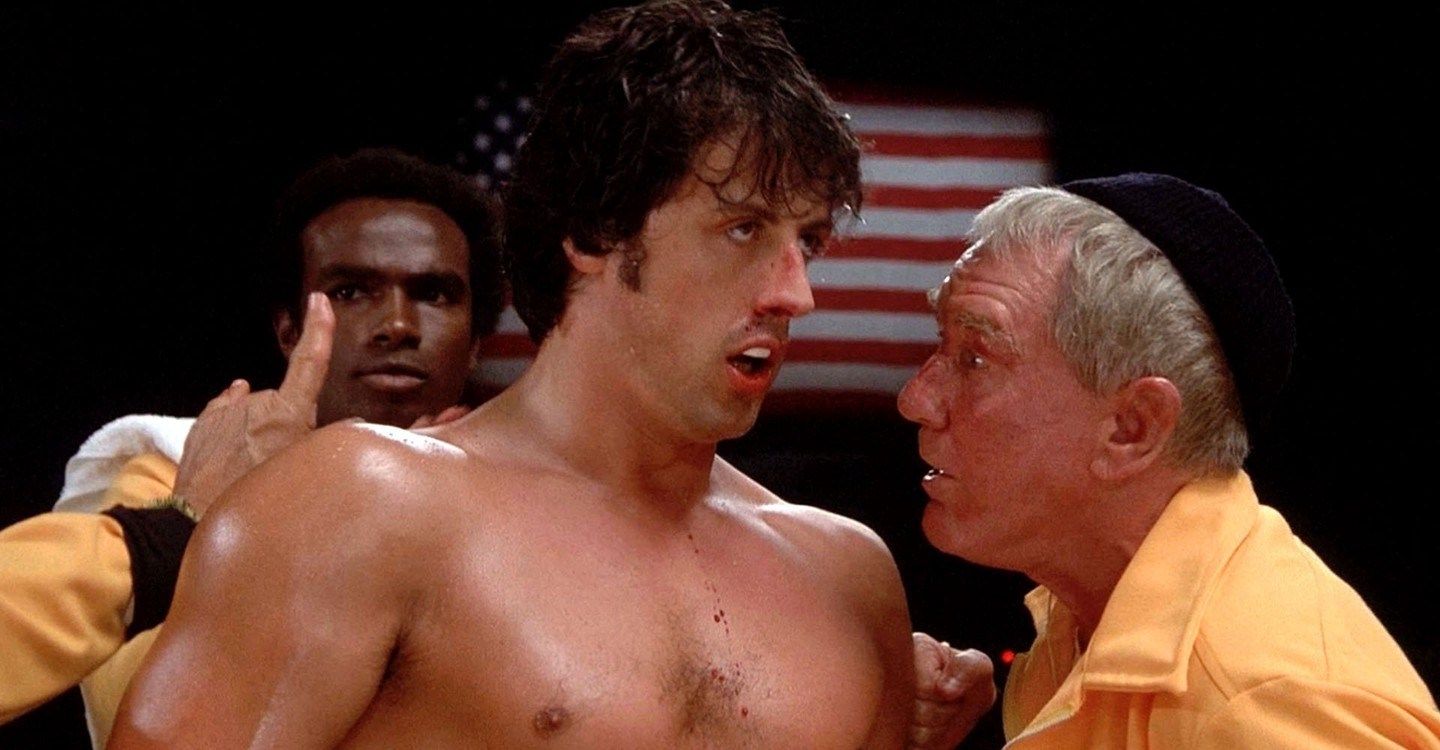While it may seem strange now considering that it's now the most iconic sports saga of all time, making a franchise out of the original Best Picture winner Rocky didn’t seem quite as obvious in 1976. Obviously, Rocky is a definitive crowd pleaser and its Oscar win came at the expense of the more subversive classics Taxi Driver, All the President’s Men, and Network, but for all the film’s fist-pumping energy, it's a definitive New Hollywood picture. Rocky is as much about the training montages as it is about sensitive conversations highlighting the plight of the working class. “To you it's Thanksgiving,” he says. “To me, it's Thursday.”
Of course, that nuanced dramatic weight would quickly become secondary to the spectacle as the Rocky franchise continued. The introduction of the new antagonist Clubber Lang (Mr. T) in Rocky III pushed into a heightened reality, and Rocky IV got into the comically absurd with Rocky single-handedly ending the Cold War. Comparing the pet shop conversation scene from John McTiernan’s original with the blatant pro-capitalism of Rocky IV, and it's shocking they exist within the same series.
Ironically, when the series attempted to return to a street-level storyline in Rocky V with McTiernan coming back, it broke with the escalated version of the Italian Stallion viewers had come to expect. Rocky V suffered from a myriad of other problems, and thankfully Rocky Balboa and Creed were able to tell stripped-down, character-centric stories that possessed the same inspirational qualities of the original. While these films were rightfully hailed, the precedent of a more nuanced story featuring Sylvester Stallone’s loveable Philadelphia boxer was established all the way back in 1979 with the first sequel, Rocky II.
While the later films would introduce exterior threats, Rocky II retained the original film’s stakes and questioned them in a logical way. What happens when an underdog becomes an icon, and how does an arrogant celebrity cope with being overshadowed by a beloved new public favorite? Rocky II equally considers the perspectives of both Rocky and Apollo Creed (Carl Weathers) and develops the ramifications of the original film’s ending rather than exploiting it.
Rocky II picks up immediately with an exciting recap of the original fight and the split decision, but follows Rocky and Apollo to the hospital as they cope with their injuries. While they had originally decided the match was a one-time media event, Apollo seeks an immediate rematch to prove his victory was well-earned. Rocky has no intentions of returning to the professional boxing world, as he’s more interested in reuniting with Adrien (Talia Shire).
The character stakes are incredibly different. Apollo just saw his reputation challenged, and while he doesn’t have any resentment towards Rocky, he knows his career hangs in the balance. While the film doesn’t specifically mention the racial pressure of being matched by a white man on a national stage, it's an impossible factor to ignore that lingers over the story, and Weathers delivers a much more vulnerable depiction of the heavyweight champ. Shire is also fantastic, and Rocky II is perhaps the only sequel that actually treats Adrian with any respect.
Rocky simply seeks a return to normalcy, and he’s finally gifted the chance to pursue his actual intentions. His wedding to Adrian is just as unpolished as it would’ve been prior, and given his fragmented physical state as a result of his injuries, a quick return to boxing would be unwise. It prompts Apollo to go into less noble territory as he launches a smear campaign designed to goad Rocky into returning for a rematch. Rocky finds himself drawn back as a means of supporting Adrian financially when she reveals that she’s pregnant.
If the original film was a star-making vehicle for Stallone, Rocky II explores the same questions the actor was personally facing about the notion of being a celebrity. It shows a discomfort within Rocky when he’s launched into a world of product endorsements, media appearances, and newfound wealth he doesn’t know how to cope with. When Adrian falls under a coma as a result of her pregnancy, Rocky doesn’t know how to pay for the operational costs.
Stallone was still at a stage in his career where he’d yet to become a caricature. He had just starred in the neo-noir thriller F.I.S.T. and the similarly nuanced wrestling drama Paradise Alley. He was about to launch another dramatic character destined to become cartoonish in sequels with First Blood. There was a reason why critics like Ebert saw him as the next Brando, and it's fascinating to see his early decisions as a director; Rocky II was his second work behind the camera after Paradise Alley. Like Rocky himself, he would become swept up within the spectacle.
The final fight sequence is arguably just as impactful, and Apollo’s desire to win by knockout adds to the intensity. Rocky’s victory as the new world champion is earned, as it comes as a result of Apollo’s ego. Rocky doesn’t truly want the belt; when he proclaims “Yo Adrien, I did it!” it's more a moment of shock to him than any personal fulfillment.
Rocky II may not have the same reputation among fans because it doesn’t introduce new iconography, but as a ‘70s drama about the consequences of victory, it's a fascinating work. The reflective nature laid the groundwork for what the Creed series would do in its consideration of legacy. Rocky II is the hidden gem of the franchise.

